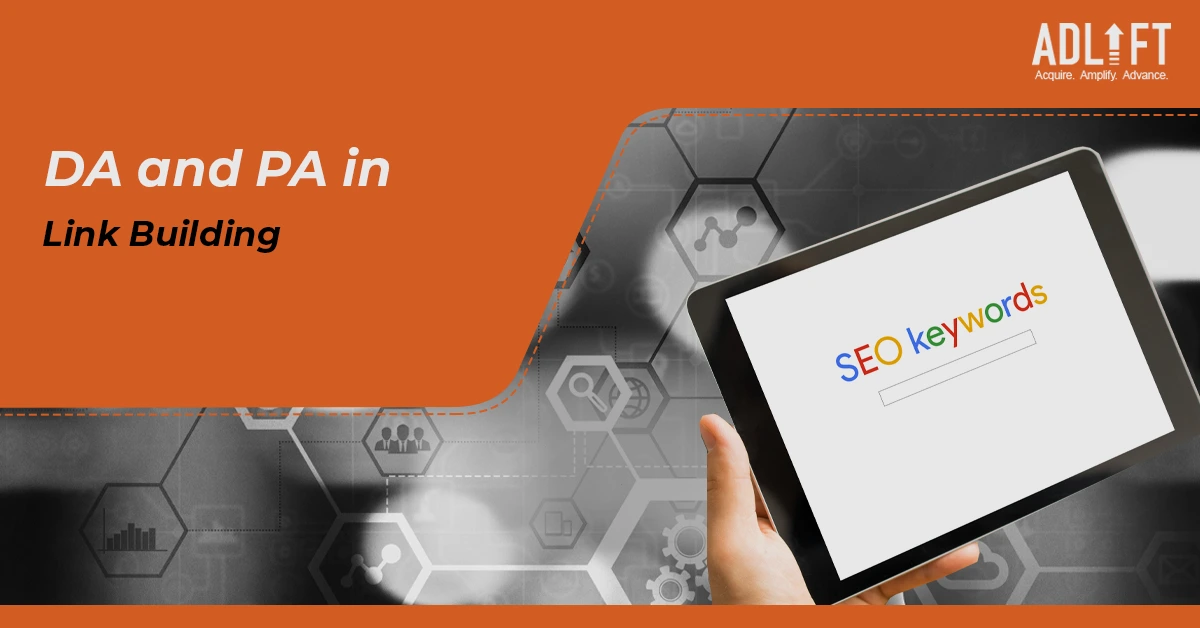DA and PA in Link Building: A Guide for Marketers

When it comes to link building, one of the most important metrics that marketers need to pay attention to are Domain Authority (DA) and Page Authority (PA). These metrics help determine the quality and relevance of a website, which can have a significant impact on search engine rankings.
In this guide, we will explore the importance of DA and PA checker in link building, how they are calculated, and strategies that marketers can use to improve these metrics and drive better SEO results.
Understanding Domain Authority (DA)
Domain Authority is a metric developed by Moz, which predicts the likelihood of a website ranking on search engine results pages (SERPs). DA is calculated on a scale of 1 to 100, with higher scores indicating a greater ability to rank.
Moz calculates DA based on several factors, including the number and quality of inbound links to a website, the age of the domain, and the overall content quality. In general, sites with a higher number of high-quality links from other authoritative websites will have a higher DA.
Improving Domain Authority
Improving your website’s Domain Authority can be a long and challenging process, but it is essential for building a strong online presence. Here are some strategies that can help improve your DA:
- Build High-Quality Backlinks: Backlinks are a crucial factor in determining DA, so it’s essential to focus on building high-quality links from authoritative sites. This can be done through guest blogging, broken link building, and other link building strategies.
- Improve On-Page Content: Your website’s content quality is another critical factor in determining DA. Focus on creating high-quality, informative content that is optimized for search engines and provides value to your audience.
- Optimize Technical SEO: Technical SEO plays a significant role in determining your website’s search engine rankings and overall DA. Ensure your website is optimized for speed, mobile responsiveness, and other technical factors that can impact user experience.
Understanding Page Authority (PA)
Page Authority is a metric developed by Moz that predicts the likelihood of a specific page ranking on SERPs. Like DA and PA checker calculates on a scale of 1 to 100, with higher scores indicating a greater ability to rank.
Moz calculates PA based on several factors, including the number and quality of inbound links to a specific page, the relevance and quality of the content, and the overall user experience.
Improving Page Authority
Improving your website’s Page Authority can have a significant impact on the rankings of specific pages and overall SEO results.
Here are some strategies that can help improve your PA:
- Build High-Quality Internal Links: Internal links are an essential factor in determining PA. Focus on building a robust internal linking structure that helps users navigate your website and provides value.
- Create High-Quality, Relevant Content: Like DA, content quality is a critical factor in determining PA. Focus on creating high-quality, relevant content that provides value to your audience and is optimized for search engines.
- Optimize User Experience: User experience plays a significant role in determining PA. Ensure your website is optimized for speed, mobile responsiveness, and other factors that can impact user experience.
Conclusion
In conclusion, DA and PA checkers are critical metrics that marketers need to pay attention to when building links and improving SEO results. Understanding how these metrics are calculated and implementing strategies to improve them can have a significant impact on your website’s search engine rankings and overall online visibility.
By focusing on building high-quality backlinks, creating high-quality, relevant content, and optimizing user experience, marketers can improve their website’s DA and PA and drive better SEO results.
FAQs
Ans: DA (Domain Authority) is a metric that measures the overall authority of a domain, while PA (Page Authority) gauges the authority of a specific webpage. Both are important in link building, with DA emphasizing domain strength and PA focusing on individual page strength.
Ans: Domain Authority (DA) is calculated by analyzing various factors such as link profile, linking root domains, and other data points. While the exact algorithm is proprietary to Moz (the creator of DA), it generally reflects the relative strength and authority of a domain.
Ans: Page Authority (PA) is calculated by evaluating factors like link profile, quality of inbound links, and other metrics. While the specific algorithm used by Moz (the creator of PA) is undisclosed, PA generally indicates the relative authority and ranking potential of a specific webpage.
Ans: Factors that contribute to an increase in Domain Authority (DA) and Page Authority (PA) include high-quality backlinks from authoritative websites, diverse and relevant link profiles, optimized on-page content, user engagement, social signals, and overall website authority and credibility.
Ans: Yes, it is possible for a high Domain Authority (DA) website to have low Page Authority (PA) for certain pages. PA is specific to individual pages and can vary based on factors like content relevance, internal linking, and backlinks directed to specific pages.
Ans: DA and PA are important metrics in link building. They help assess the authority and strength of domains and individual pages. Higher DA and PA generally indicate better link prospects and can contribute to improved search engine rankings and organic traffic.
Ans: Yes, there are several tools available to measure and track Domain Authority (DA) and Page Authority (PA). Popular options include Moz’s Link Explorer, Ahrefs, SEMrush, Majestic, and Serpstat, which provide insights into these metrics and other valuable SEO data.
Ans: No, link building does not solely rely on Domain Authority (DA) and Page Authority (PA). While these metrics are important for assessing website and page strength, other factors like relevance, quality, and diversity of backlinks also play a significant role in effective link-building strategies.
Recent Posts
- Optimizing For Google AI Overviews: What Marketers Need To Know November 19, 2024
- Google’s Latest Shake-up: November 2024 Core Update November 13, 2024
- SEO Ranking Explained: Proven Techniques to Enhance Your Website’s Traffic October 22, 2024
- The Importance of Mobile SEO Optimization: A Guide to Staying Competitive October 16, 2024
- What is Evergreen Content? Build Traffic That Never Fades October 15, 2024
- The Role of Technical SEO Elements in Enhancing Site Performance and Rankings October 10, 2024
- Customer Acquisition 101: Building a Loyal Client Base October 10, 2024
- How User Experience Directly Impacts SEO Rankings: Key Factors to Consider October 8, 2024
- Core Web Vitals and SEO: How to Optimize for a Faster Website? October 3, 2024
- What is Schema Markup? Strategies to Use it for Better SEO Performance September 16, 2024
Get
in Touch
Contact AdLift for a 360-degree marketing plan


